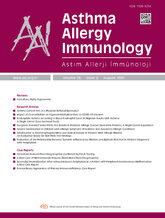


Hereditary alpha tryptasemia (HAT) is currently considered a fully penetrant genetic trait. An increased germline copy number of the TPSAB1 gene results in HAT. Hereditary alpha tryptasemia is estimated to affect 4%-6% of the Western population. The association between HAT and mast cell disorders is well established. Several studies have demonstrated a correlation between idiopathic anaphylaxis and HAT, with HAT detected in approximately 17% of patients presenting with idiopathic anaphylaxis. Patients exhibiting symptoms of mast cell activation, including anaphylaxis and gastrointestinal manifestations, and with basal serum tryptase (BST) levels exceeding 8 ng/mL should be considered for tryptase genotyping by digital droplet polymerase chain reaction. Currently there are no treatment modalities specific to HAT. Treatment focuses on alleviating symptoms and is intended for long-term management.